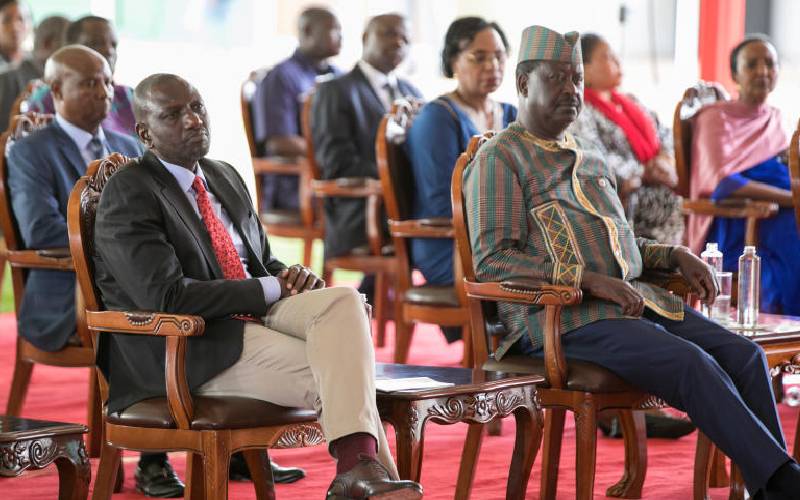
Deputy President William Ruto and ODM leader Raila Odinga follow proceedings during national prayers at State House, Nairobi.
Raila Odinga is right. We are all either hustlers, or we have been. The unstated thing is which type. It is a conversation Kenya must have, free of the animus that has informed the discourse this far. Deputy President William Ruto has framed the 2022 election as a contest between what he calls the dynasties and the hustlers. This has been understood differently by different persons, depending on where they stand.